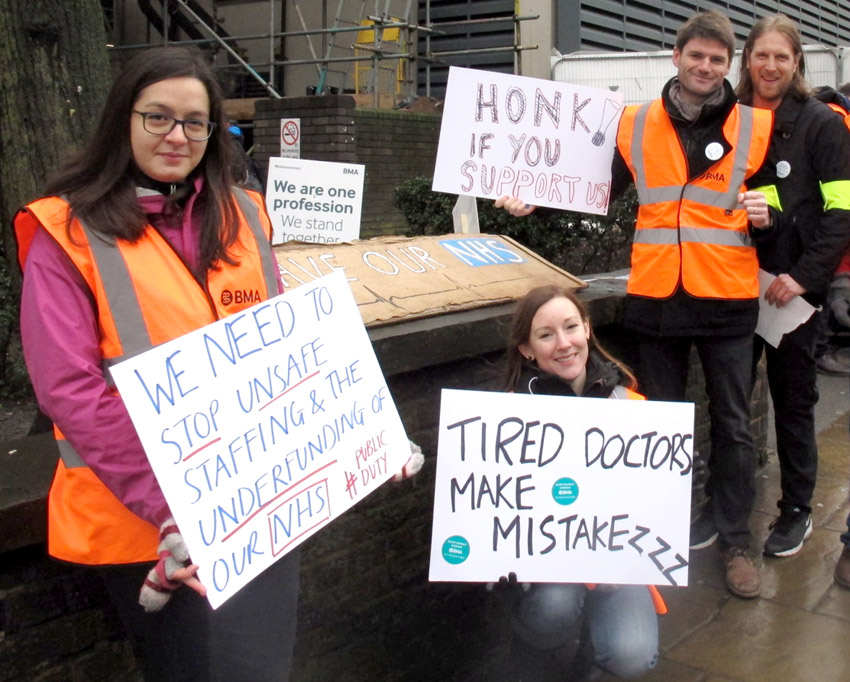HOSPITALS ‘do not have the capacity to cope’ said the British Medical Association (BMA) in response to Emergency Medicine Journal findings about longer waits leading to higher risk of death.
Commenting on the publication of a study in Emergency Medicine Journal showing that patients who wait more than five hours in emergency care have a greater risk of death within 30 days, Dr Simon Walsh, BMA consultants committee deputy chair and emergency medicine consultant, said:
‘Performance against the four-hour target over recent months has been the worst recorded since it was introduced and this paper shows that the longer patients wait, the greater their risk of death.
‘The study used data from before the pandemic started and sadly, we know that more patients are now waiting much longer than the target of four hours, with a huge increase in the number who are waiting over 12 hours to be seen and admitted.
‘This exit block from emergency departments, caused by a lack of any spare capacity in hospitals, also leads to delayed ambulance handovers, sometimes for several hours, with devastating effects on ambulance response times also resulting in harm to patients.
‘The reason that patients are having to wait longer for emergency ambulances and emergency treatment in hospital is because of decades of underinvestment in the NHS, combined with a workforce crisis.
‘Doctors are exhausted from working through the pandemic, often feeling hugely exposed due to inconsistent access to Personal Protective Equipment (PPE) and in many cases, are being redeployed to work in unfamiliar environments.
‘This workforce crisis has been compounded by punitive taxation rules which penalise doctors for doing more work and, with no end in sight, many are leaving the NHS entirely, often taking early retirement.
‘It’s clear that hospitals simply do not have the capacity to cope.’
